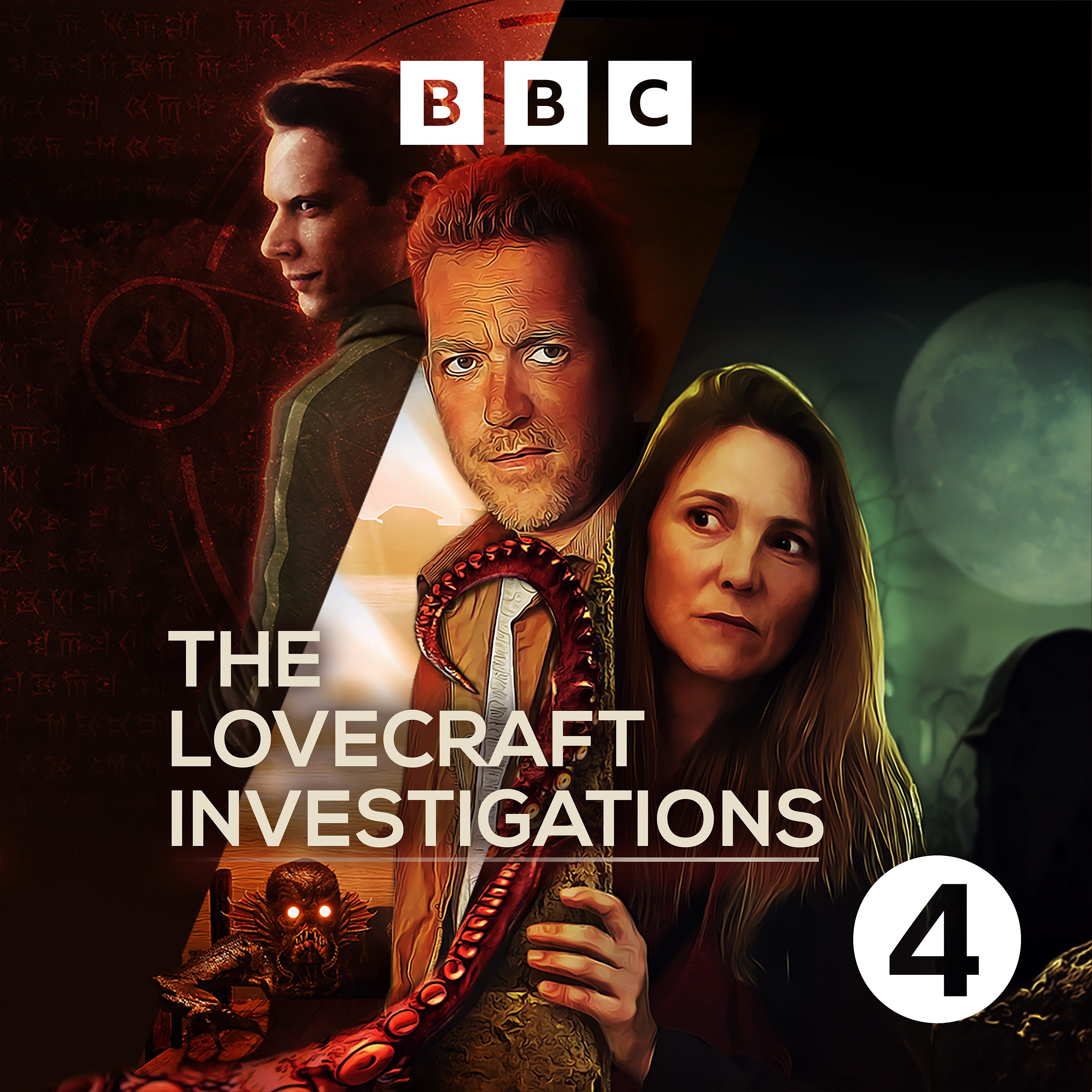A sad case of creativity vitiated by ideology
☆
☆
☆
☆
☆
“As a latecomer to Lovecraft (via audiobooks) I was intrigued by this podcast when I stumbled across it. I started withThe Whisperer in Darkness before realizing there were earlier episodes, so I listened to series 1 and then 3, before stopping at episode 3 of series 4.
There is a lot to like about this show. First, the imaginative rendering of Lovecraft tales into detective-style procedurals, with incidents and resolutions in one series setting the stage for the next.
Second, the disciplined pacing and short lengths of the episodes, along with the variation provided by Matt and Kennedy’s often separate adventures, keeps the listener engaged.
Third, the acting is solid, and features several actors I’ve long appreciated, such as Alun Armstrong, Steven Mackintosh, Nicola Walker, Robert Glenister, and the perennially underrated and underused Michael Maloney.
Fourth, the sound design is outstanding in bringing the dread and drama to life.
On the debit side, an ideological heavy-handedness constricts, and ultimately crushes, the writer’s muse. The central characters reminded me of the kids in Scooby-Doo, but mutated in a laboratory with genetic procedures developed by the BBC and The Guardian.
Kennedy Fisher could be the offspring of Fred and Daphne. She is plucky and likeable, and shares both Fred’s tendency to bossiness and Daphne’s habit of getting into danger.
Matthew Heawood is Shaggy: Nervous, credulous and submissive.
With her analytical ability and knowledge of obscure topics, Dr Eleanor Peck is a latter-day Velma. Yet sadly Eleanor is rendered insufferable by arrogance, irritability and an inexplicable contempt for the subjects to which she has devoted her professional life. These annoying traits are compounded by a juvenile mode of expression (reminiscent of Dee Gilhooly in This Time with Alan Partridge).
Identitarian biases are also evident in the predominance of middle-class characters. There are a few working-class men, but they are mostly confined to police, army and IT functions. Similarly, the key figures of authority and intelligence are women, while competent men generally turn out to be villains.
These ideological aspects, while intrusive, can be overlooked, but what overwhelms the series is an increasing obsession with associating the occult and National Socialism with Brexit and the Reform Party.
To portray a mass popular vote for greater sovereignty as a new manifestation of the most reviled regime in history, is as absurd and offensive as linking the 2024 general election to the Khmer Rogue.
If there is a fifth series, I hope it doesn’t sacrifice storytelling to ideology.”
Death Trooper 7721 via Apple Podcasts ·
Australia ·
09/01/24
More reviews of The Lovecraft Investigations
☆
☆
☆
☆
☆
“Superb production...leaves you wanting more”
Daryll alder via Apple Podcasts ·
Great Britain ·
12/18/19
☆
☆
☆
☆
☆
“I played the H.P. Lovecraft inspired game Call of Cthulhu as a teenager and listened to audio books like A Shadow Over Insmouth as an adult. Imagine my delight to hear such an innovative retelling of these stories. I loved the investigative podcast setting and was excited to hear the last episode...”Read full review »
SergeiDiGriz via Apple Podcasts ·
Great Britain ·
12/17/19
☆
☆
☆
☆
☆
“Atmospheric and well-paced mystery, reimagining the original horror novel as a true crime podcast, with a great cast. Jana Carpenter is particularly brilliant as Kennedy, the American reporter looking into the Case of Charles Dexter Ward.”
Libby242 via Apple Podcasts ·
Great Britain ·
08/14/19
Do you host a podcast?
Track your ranks and reviews from Spotify, Apple Podcasts and more.


